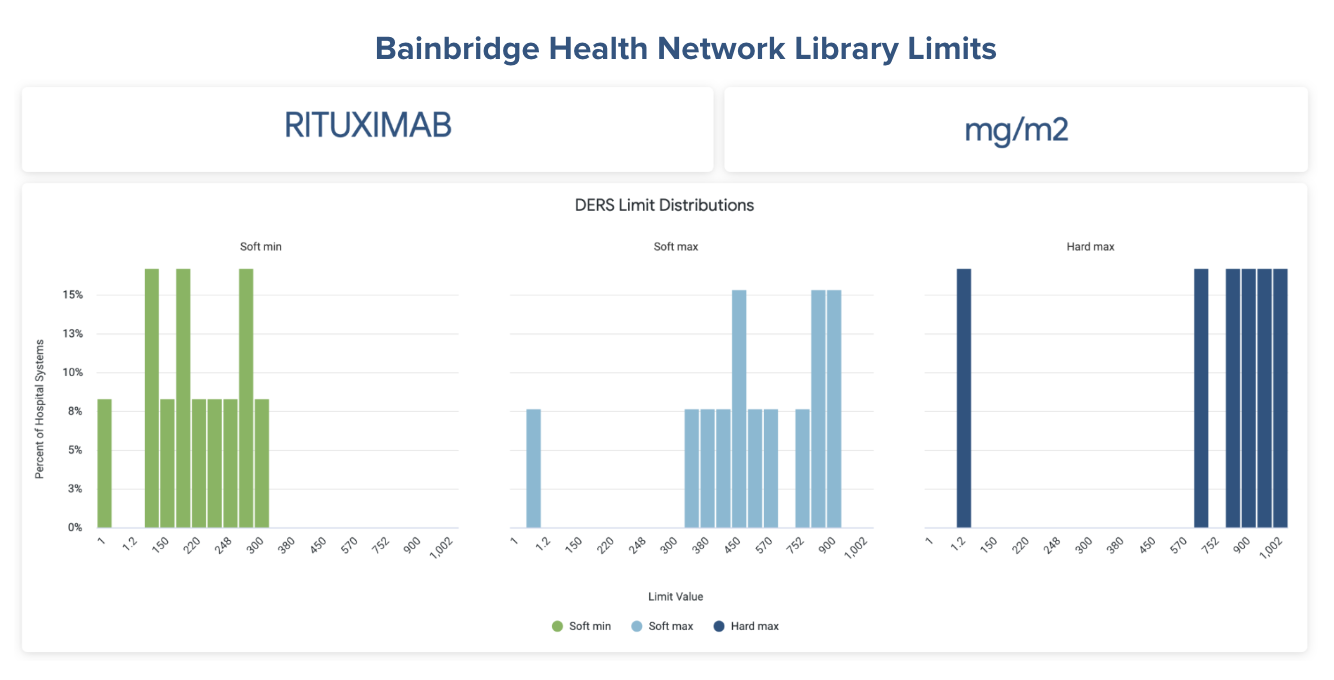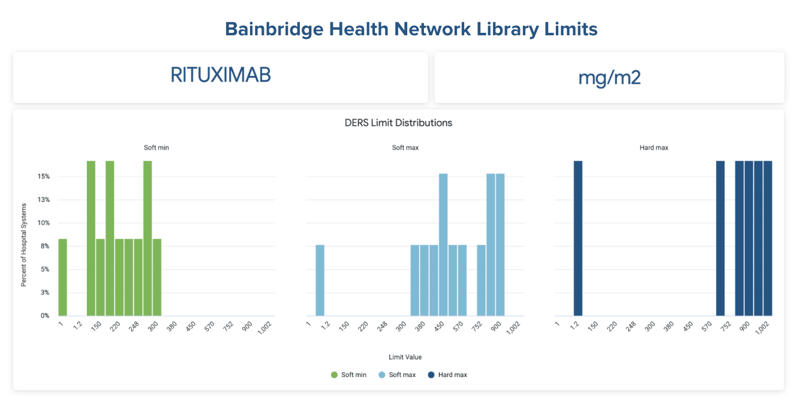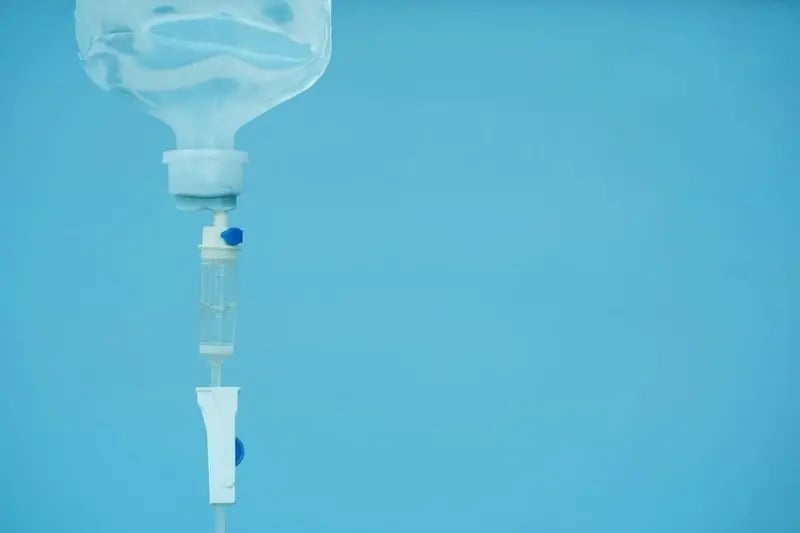
Med O.S.® for Infusion Safety Network Result
Using Med O.S.® to Gain Visibility Into DERS Non-Compliant Infusions
Study Overview
Situation
A large pediatric health center, committed to patient safety and medication accuracy, sought to improve compliance with Dose Error Reduction Software (DERS). The health center was particularly interested in better understanding infusions administered outside of the protection of the DERS safeguards.
Business Case & Findings
The Institute for Safe Medication Practices (ISMP) advocates for a DERS compliance goal of 95%. Bainbridge Health’s national network data further demonstrates best-practice DERS compliance consistent with the 95% goal. Achieving these compliance targets is critical for patient safety and preventing medication errors. Med O.S.® revealed that hard dose limits within the hospital’s drug library were too restrictive, forcing clinicians to manually override safeguards and deliver infusions outside of DERS library limits.
Results
The health system implemented numerous Bainbridge Health interventions and saw an immediate reduction in non-compliant infusions (and corresponding increase in DERS library compliance). This significantly reduced the risk of medication errors and ameliorated clinician workflow burden.
Situation
A large pediatric health center, committed to patient safety and medication accuracy, sought to improve compliance with DERS. They established a goal of reaching 95% DERS compliance, consistent with Institute for Safe Medication Practices (ISMP) recommendations and Bainbridge Health national best practice. However, the institution had observed a growing decrease in DERS library compliance and a corresponding growing number of non-compliant infusions administered outside of the DERS library safeguards.
Business Case
- ISMP recommends maintaining ≥95% DERS compliance to ensure smart pumps effectively prevent infusion-related medication errors. Bainbridge Health national network benchmarks further support this target as network best-practice. Non-compliance can lead to patient harm, nurse care team burn-out, increased organizational liability, and regulatory violations.1
- Frequent overrides of drug library alerts increases the risk of medication errors, leads to patient harm, and over $8,000 of avoidable cost per event. Nursing interruptions are further associated with a 16.1x greater risk of harm.2,3
Intervention & Impact
While DERS library safeguards are designed to prevent medication errors by enforcing predefined dosing parameters, the frequency of overrides raised concerns about potential safety risks in infusion practices. Rituximab, a monoclonal antibody used in pediatric oncology and immunology, was particularly affected by these overrides. Given its complexity and variable dosing regimens, clinicians often encountered hard dose limits, leading them to bypass DERS safeguards to provide necessary administrations.
Bainbridge Health leveraged its Med O.S.® complex event processing capability to assess the organization's growing DERS library compliance concerns. It identified that a large number of programming attempts triggered a “hard stop” and nurses subsequently re-programmed the administration to run outside of the drug library parameters, leading to non-compliance. In many cases, the programmed dose was clinically acceptable; however, the organization's thresholds were set too narrowly, preventing the care team from administering clinically appropriate doses within the predefined DERS library limits.

Bainbridge Health provided numerous drug library intervention opportunities in order to optimize DERS library parameters and better align hard stop limits with the clinical evidence base, using its national network data to benchmark dose limit thresholds against other similar pediatric organizations. The hospital’s pharmacy and clinical leadership team implemented these interventions and observed a significant reduction in overall non-compliant infusions. In particular, by optimizing drug library limits for rituximab, the center reduced the frequency of alert overrides and non-compliant infusions administered outside of the DERS safeguards.
Related Network Results

Optimizing Chemotherapy Decision Support to Reduce Bedside Interruptions by 85%

Building a Safer Infusion Culture: Increasing DERS Compliance From 34% to 90% Through Targeted Action

Investigating Hydromorphone Alerts to Identify Outlier Impact
Ready to Harness the Full Potential of Your Infusion Data?
Disclaimer
This example is for informational purposes only and should not be relied upon to make specific clinician decisions.
All clinical opportunities identified by Bainbridge Health were evidence-based according to supporting literature and network data. They were also made under the surveillance of the Bainbridge Health Clinical Solutions team, an interdisciplinary group of subject matter experts who provide guidance and oversight.
References
- Institute for Safe Medication Practices (ISMP). Survey results: Smart pump data analytics. Acute Care ISMP Medication Safety Alert. 2018; 23(14).
- Institute of Medicine. Preventing medication errors. Washington, DC: The National Academies Press; 2007.
- Drews F, Markewitz B, Stoddard G, et al. Interruptions and the delivery of care in the intensive care unit. Human Factors. 2019; 61(4):564-576.